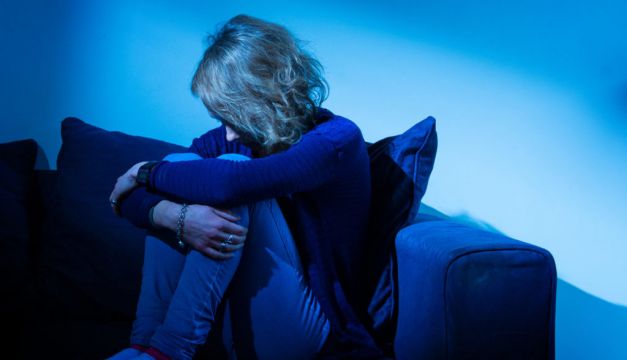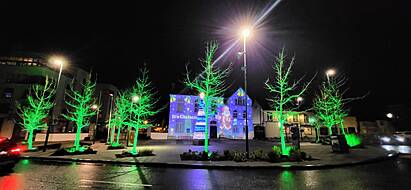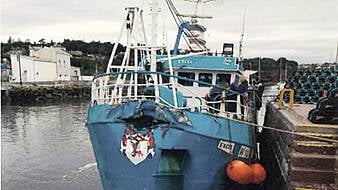Charities have warned that a proposed statutory agency tackling domestic, sexual and gender-based violence (DSGBV) “needs to have teeth”.
The Oireachtas Justice Committee invited several non-governmental agencies to attend on Tuesday for pre-legislative scrutiny of the Bill to create an agency.
A key responsibility of the agency would be overseeing and supporting the provision of refuge accommodation for victims, backing the Government’s commitment to double the number of refuge places and increase the number of safe homes and other accommodation by 2026.
The establishment of the agency also aims to ensure there is a permanent structure to help deliver further refuge accommodation over the long term.
While broadly welcoming the goals of the agency, some organisations raised concerns about its remit and the make-up of its board.
The National Women’s Council said the agency must include a strong role for survivors, civil society and other government agencies.
It is calling for the Bill to “explicitly ensure collaboration with civil society and victim-survivors”.
The council said the board must have at least two members of civil society organisations, reflecting women survivors of DSGBV in all their diversity and that the Bill be amended to provide for greater collaboration with other government agencies.
The chief executive of the Safe Ireland domestic violence services network also called for the explicit inclusion of DSGBV experts on the board to avoid risking the “problematic reproduction of past problems”.
Mary McDermott said she was hopeful of a “future-facing” agency.
Rape Crisis Network Ireland executive director Cliona Saidlear said: “We see risks in this Bill in how the functions and powers of this agency may be shaped and confined such as to make this legislative process itself effectively meaningless.”
Commenting on when the minister would direct the agency, Ms Saidlear added she was “left wondering what strategic role the agency and the board has, if any”.
She said if the board, as currently constructed, had little or no strategic remit, the agency could not be said to have a policy-leadership role or independence.
Responding to a question on the composition of the board from Sinn Féin TD Martin Kenny, National Women’s Council director Orla O’Connor said the wording of the draft Bill was “not strong enough” and “could be very limited”.
“It is not acknowledging the expertise that’s there,” she said.
Salome Mbugua Henry, chief executive of the AkiDwA network for migrant women, said the board must reflect the diversity of lived experiences of women in Ireland.
Trans Equality Network Ireland education officer Daire Dempsey said it was “vital” for the needs of a diverse and intersectional trans community to be considered when appointing a board.
Labour TD Aodhan O Riordain said the composition of the board would be the “key” to the success of the agency over a prolonged period of time.
Colm Kelly Ryan, head of programmes and advocacy at the Men’s Development Network, said the wording needed to be revised to include “the experiences of service providers and those in service delivery”.
He said engaging with men and boys is at the “heart of prevention” of DSGBV.
“We can’t have a strategy where nothing changes – and we have to go and engage with men and boys.”
Ms Saidlear said that while addressing the composition of the board is important, it would be “deeply problematic” if it did not have the power to tackle issues.
“What we have to look at first is what the board has been asked to do.
“So far it has been asked to do very little, it doesn’t have much by way of strategic room, it is not independent.
“It has a veneer of independence that it offers but it hasn’t been given the task of strategically steering this agency.”
Responding to Sinn Féin TD Pa Daly, Ms O’Connor said there needs to be increased powers for the agency to oblige departments and public bodies to meet their commitments.
“This agency has to have teeth because otherwise it will be a service delivery piece and we’ll have a strategy here that might sit on a shelf.”
Independent TD Thomas Pringle said that as currently described, the agency is “not going to achieve its aims, unfortunately”.
In response, Ms Saidlear said that while the agency will undertake a national service development plan, a needs assessment is not built into the legislation.
“Then you need a criteria of funding that is transparent,” she said. “We should be in that space, we are not.”

The Department of Justice said it would give “careful consideration” to the importance of sectoral expertise.
The department’s principal officer for DSGBV, Layla De Cogan Chin, said it wanted the agency to be future-facing and was keen to ensure it has the mandate to deal with current and emerging problems.
“We’ve heard you, we will take what you said very seriously, we will consider it all.”







